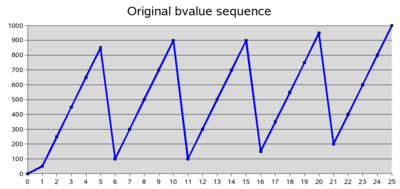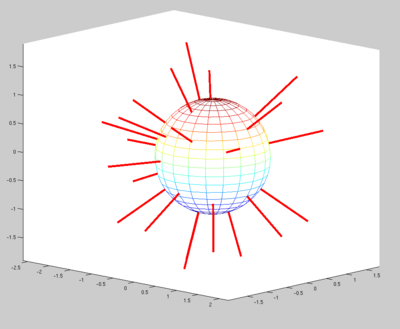Difference between revisions of "Projects:DicomToNrrdForDTI"
| Line 11: | Line 11: | ||
[[Image:OrigDataBVal.png|400px|right]] | [[Image:OrigDataBVal.png|400px|right]] | ||
| − | [[Image:OrigGradDir3D.png|400px|left]] | + | [[Image:OrigGradDir3D.png|400px|left|none]] |
| + | |||
| + | |||
| + | |||
| + | == Data comparison == | ||
| + | |||
| + | We loaded this dicom dataset into the “Dicom DWI loader” module in Slicer3. This module creates a NRRD header based on the information read from the dicom header. We compared the values outputted by the Slicer3 modules with the ones gave to us by the people who designed the DTI sequence. | ||
| + | |||
| + | = bValues = | ||
Revision as of 17:03, 29 April 2008
Home < Projects:DicomToNrrdForDTIDicom conversion for DTI data
Introduction
In this page we present some results on the conversion from dicom data to DTI. Working with this new dataset, we noticed differences between the dicom header information and the ones from the original protocol designed for this study. In this page, we want describe and discuss these differences.
The data we worked with have been acquired with a Siemens 3T Tim Trio.
The DTI sequence is a 25 directions with variable b-values plus one B0 image.
Data comparison
We loaded this dicom dataset into the “Dicom DWI loader” module in Slicer3. This module creates a NRRD header based on the information read from the dicom header. We compared the values outputted by the Slicer3 modules with the ones gave to us by the people who designed the DTI sequence.

